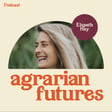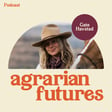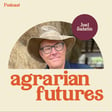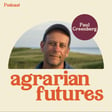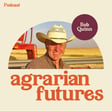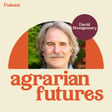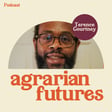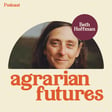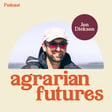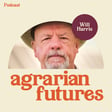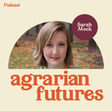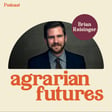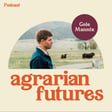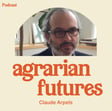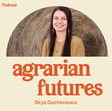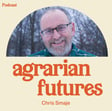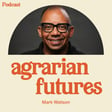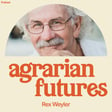
Empowering Farmers with Regen Media with Taylor Henry
Register for the Acres USA conference coming up on December 2-5, 2024. And if you can’t make those dates or its already passed, you can purchase the event recordings as well!
Can a digital bookstore and learning community reshape the world of farming? On our latest episode Taylor Henry, owner of Acres USA, makes a compelling case. He takes us through his journey into regenerative agriculture, sparked by Acres USA's rich catalogue. Taylor shares how Acres USA is redefining what it means to learn the craft of farming, offering an education that could rival, and even surpass, the traditional university path.
We also dive into the upcoming Acres USA conference, where leaders and learners come together to inspire, innovate, and transform the future of agriculture. Taylor explains why it’s essential for farmers to see themselves as entrepreneurs and how Acres USA equips them to do just that.
In this episode, we cover:
- How Acres USA’s bookstore sparked Taylor’s journey into regenerative farming.
- The history of Acres USA and its role in pushing forward organic and regenerative ag.
- How they’re marrying archival and historical knowledge, with the latest thinking in regards to agriculture.
- Why Taylor believes the offerings of Acres USA can rival the traditional university system when it comes to learning the business of regenerative farming.
- Why farmers need to see themselves as entrepreneurs.
- What’s in store at the upcoming Acres USA conference where leaders in the field will be sharing insights and regenerative farmers can gather to learn from each other.
- Some exciting innovations that can showcase the health benefits of regeneratively grown beef.
- And much more...
Register for the Acres USA conference
More about Taylor, Acres USA, and the Acres USA Podcast:
Taylor Henry is the owner and CEO of Acres USA, which he acquired in 2023. He is also the visionary behind Henry Pastures, a regenerative farm in Wisconsin. Originally setting aside his farming dreams, Taylor’s journey began in law enforcement and later led him into entrepreneurship. Eventually, he returned to his passion by establishing Henry Pastures, a 200-acre regenerative farming operation dedicated to holistic land management and sustainable practices. Taylor also works in real estate, helping others pursue land ownership with a focus on regenerative agriculture.
Agrarian Futures is produced by Alexandre Miller of You Should Have a Podcast, who also wrote our theme song. This episode was edited by Keith J. Nelson.
